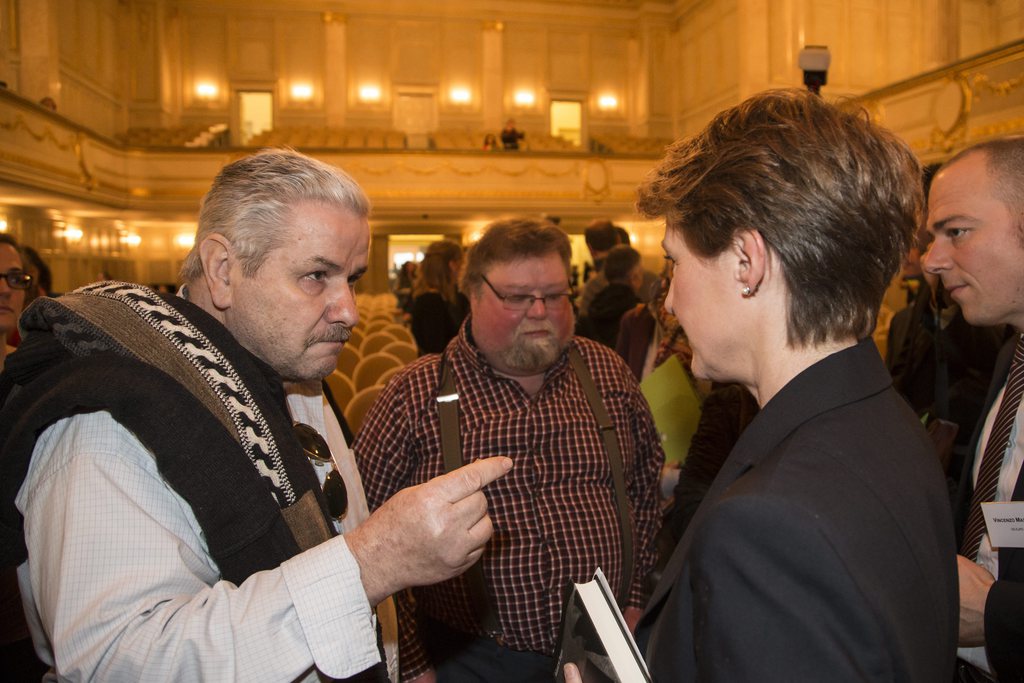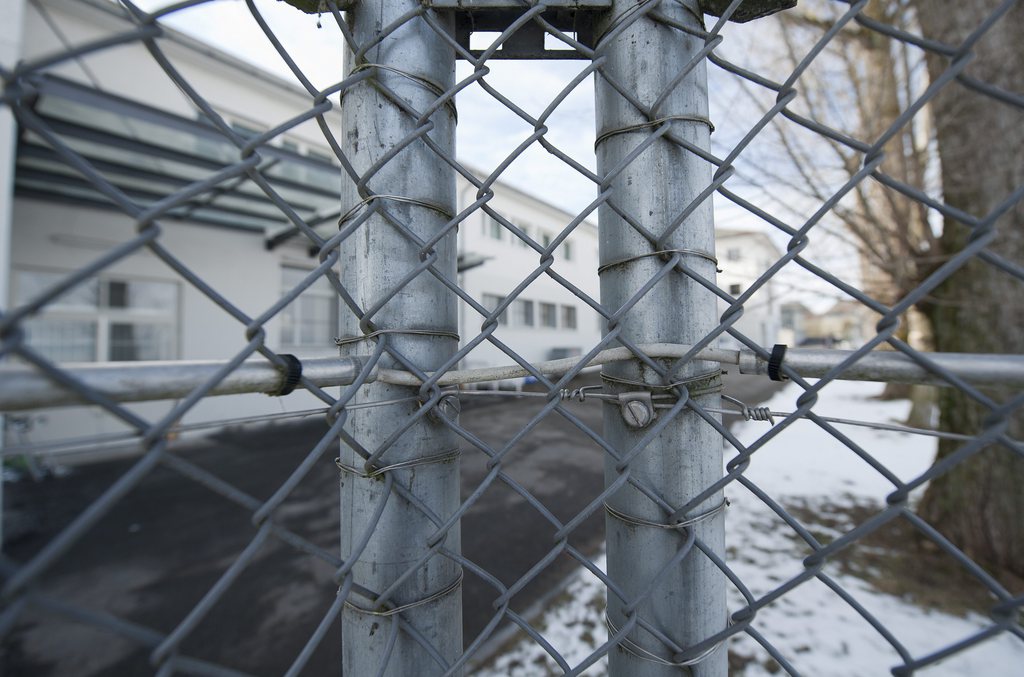
Government apologises to child labourers

Justice Minister Simonetta Sommaruga has apologised on behalf of the cabinet for the harm suffered by child labourers who were placed by the authorities to work, mainly on farms, a practice that continued until the early 1980s.
The question of financial compensation was not touched on by the minister who was speaking in Bern at a commemorative event dedicated to the victims of the care system.
Tens of thousands of so-called ‘discarded children’ were taken from their families as part of a harsh foster care system sanctioned by the state, which evolved from a rural custom of taking on poor children as servants and labourers.
“The time has come for us to do something, that has until now been denied to you, former discarded children and other victims of the enforced measures of the care system,” Sommaruga told the gathering.
Included in the official apology were women and girls subject to forced sterilisation and those locked up under the “administrative care” legal provision. Some were removed from society for being unmarried and pregnant, many were put under pressure to give up their babies for adoption. Other women and men were deprived of their liberty for “licentiousness”, “drunkenness” or for being “work shy”.
“For the harm that was done to you, I ask your apology in the name of the government of the country sincerely and with all my heart,” the minister said.
Sommaruga said what happened to the discarded children and others could not be undone by any words, describing their experience as a violation of human dignity. “We cannot look away any longer. Because that is exactly what we have done for much too long.”

More
Recognising Switzerland’s “slave children”
First step
The minister made no direct reference to possible financial compensation, although she said the commemorative event was the first step in a process of working through the wrongs of the past historically and legally.
Former Senator Hansruedi Stadler has been nominated to mediate future discussions between the victims and institutions.
The meeting in Bern on Thursday was the first time all those historically involved in the policy met to openly discuss this dark chapter of Swiss social history. Participants included representatives from the institutions, churches, cantons, towns and the Swiss Farmers’ Association.
Also addressing the gathering, Markus Ritter, president of the farmers’ association, was almost drowned out by whistles and hecklers when he tried to make the point that not all children suffered.
“I am sure that in many farming families, discarded children were properly treated or at least as well as the family’s own children were treated in those times,” Ritter said.
On behalf of the country’s three main churches, Catholic bishop Markus Büchel asked for forgiveness from the victims of past injustice. Recent independent inquiries into conditions in Switzerland’s church-run children’s homes found serious failings and “systemic misery” in some institutions in the decades from 1930 to 1970.
One victim of administrative care, who was sent to prison at the age of 17 when she became pregnant, spoke emotionally about her experience. “The worst thing they did to us was that they tried to break our will. Many of us fell apart under this,” she said.

In compliance with the JTI standards
More: SWI swissinfo.ch certified by the Journalism Trust Initiative





























You can find an overview of ongoing debates with our journalists here . Please join us!
If you want to start a conversation about a topic raised in this article or want to report factual errors, email us at english@swissinfo.ch.